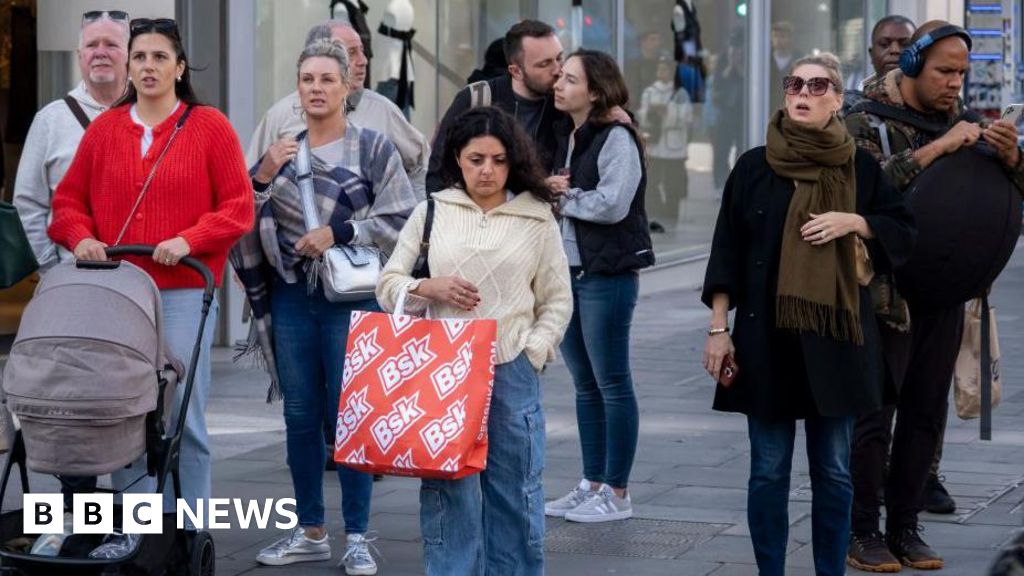There could be more spending increases and more tax rises to come over the next two years, according to the Institute for Fiscal Studies (IFS), a respected economics think tank.
Chancellor Rachel Reeves insisted on Wednesday that her huge revenue-raising Budget was a one-off move to “wipe the slate clean” and not something she “would want to repeat”.
But Paul Johnson, head of the IFS, told the BBC that pressures to keep spending on public services would be hard to resist.
“I suspect we’ll end up with even more spending, possibly considerably more spending than is currently planned,” he said.
“That will probably mean, unless she gets lucky with growth, more tax rises to come next year or the year after,” he told BBC Radio 4’s Today Programme.
He said Reeves’ Budget contained a large amount of additional spending this year, followed by a fair bit next year. After that spending was set to grow “implausibly slowly”, Mr Johnson said.
“It’s possible she’ll argue that spending rises so much this year and next that no more money will be needed for the next three years of this parliament,” he said.
But, in the absence of much stronger-than-forecast economic growth, he thought further spending and taxes rises were much more likely.
Growth forecasts published alongside the Budget suggest UK growth will pick up over the next two years, but then fall back to a more moderate pace, in large part due to Budget measures that are likely to push up prices and interest rates.
Mr Johnson described the forecasts as “pretty awful”.
Slower growth will also undermine progress on improving living standards, according to analysis from the Resolution Foundation think tank.
Reeves’ decision to increase taxes and borrowing to raise funding for public services and investment is a clear move away from the cuts set out by the previous government, it said.
But it warned the Budget “has not yet delivered a decisive shift away from Britain’s record as a ‘stagnation nation’,” as the outlook for both growth and living standards remains weak.
On Wednesday, Reeves announced Labour’s first Budget since 2010, after the party’s return to power in July’s general election.
“The short-term effect of these changes will be better-funded public services,” Mike Brewer, interim chief executive of the Resolution Foundation, said.
“But families are also set for a further squeeze on living standards as the rise in employer National Insurance dampens wage growth,” he added.
The new tax and benefits policies will affect everyone, said the think tank, which aims to improve living standards for low-to-middle income families.
Disposable incomes – the amount people have to spend once taxes and benefits have been taken into account – are expected to grow more slowly due to the measures in the Budget. Real household disposable income per person is projected to grow by 0.5% a year on average across the parliament.
The Resolution Foundation calculated the incomes of the poorest half of households will grow by 0.8% less than they would have otherwise.
The richest half face a reduction in where their income would have been of 0.6%.
Wealthy households are expected to experience the biggest overall impact due to capital gains and inheritance tax changes.
The foundation expects wage rises to be hit by a combination of an already challenging outlook, weaker growth due to increased taxes on employment and higher inflation.
This will mean that by 2028 real weekly wages will have grown by just £13 over the past two decades, it said.
In its general election manifesto, Labour promised not to increase taxes on working people – explicitly ruling out a rise in VAT, National Insurance or income tax.
The pledge has come under scrutiny, with some claiming that the rise in the National Insurance rate paid by employers breaks that pledge, something the government has denied.
The Resolution Foundation also warned that the decision to frontload increases to spending on public services into this year and next means the Spending Review in the Spring will be tough.
Reeves has also left herself with a “relatively slim margin of headroom”, it said.
The chancellor’s new debt rule allows more room to manoeuvre but most of that money has already been used up, which means that even a small economic downturn could force the government to increase taxes further in the future, the think tank said.

